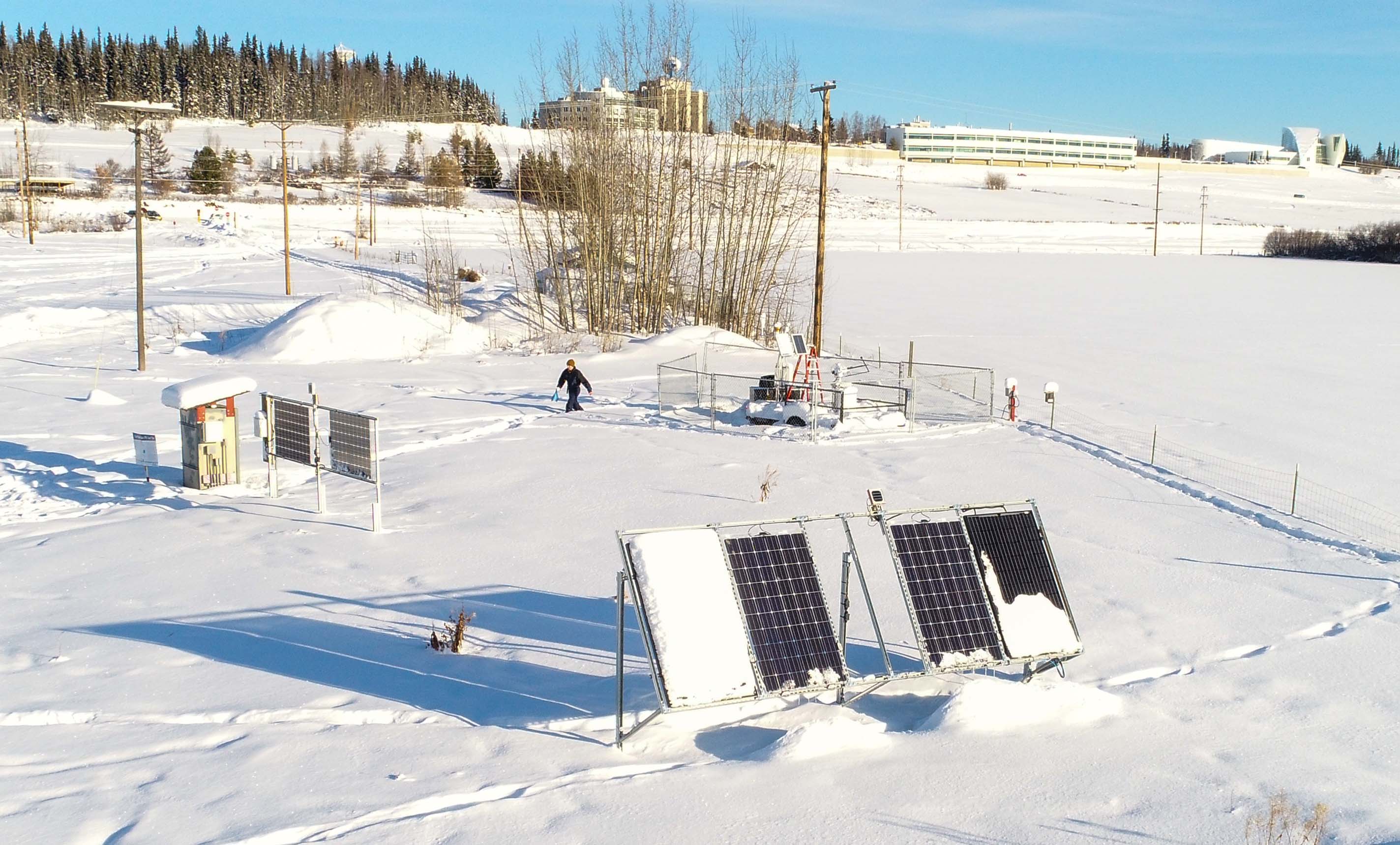UAF Solar Photovoltaic Test Site

Solar photovoltaic panels are becoming a viable, economic energy source in a number of locations around Alaska and the Arctic to offset high energy costs. This technology is especially attractive due to the lack of moving parts requiring little to no maintenance in extreme, remote conditions.
The UAF study site has two sets of bifacial solar PV arrays, one set oriented along a north-south axis (facing east-west) and another in a standard (south-facing) configuration alongside two south-facing monofacial panels.
Bifacial solar PV panels absorb and convert sunlight on both sides, unlike traditional monofacial panels.
Previous studies show bifacial PV panels outperform monofacial panels. These enhancements should be even more prominent in Alaska, due to reflected light from snow and low temperatures in winter, as well as a large solar azimuth range.
The goal of this installation and the nearby weather station is to characterize performance enhancements of bifacial solar panels at high latitudes.
This test site is a cooperative effort between the Alaska Center for Energy and Power (ACEP) at the University of Alaska Fairbanks and Sandia National Laboratories.
ACEP's Solar PV Test Site includes monofacial and bifacial solar panels as well as a weather station. Photo by Amanda Byrd.


